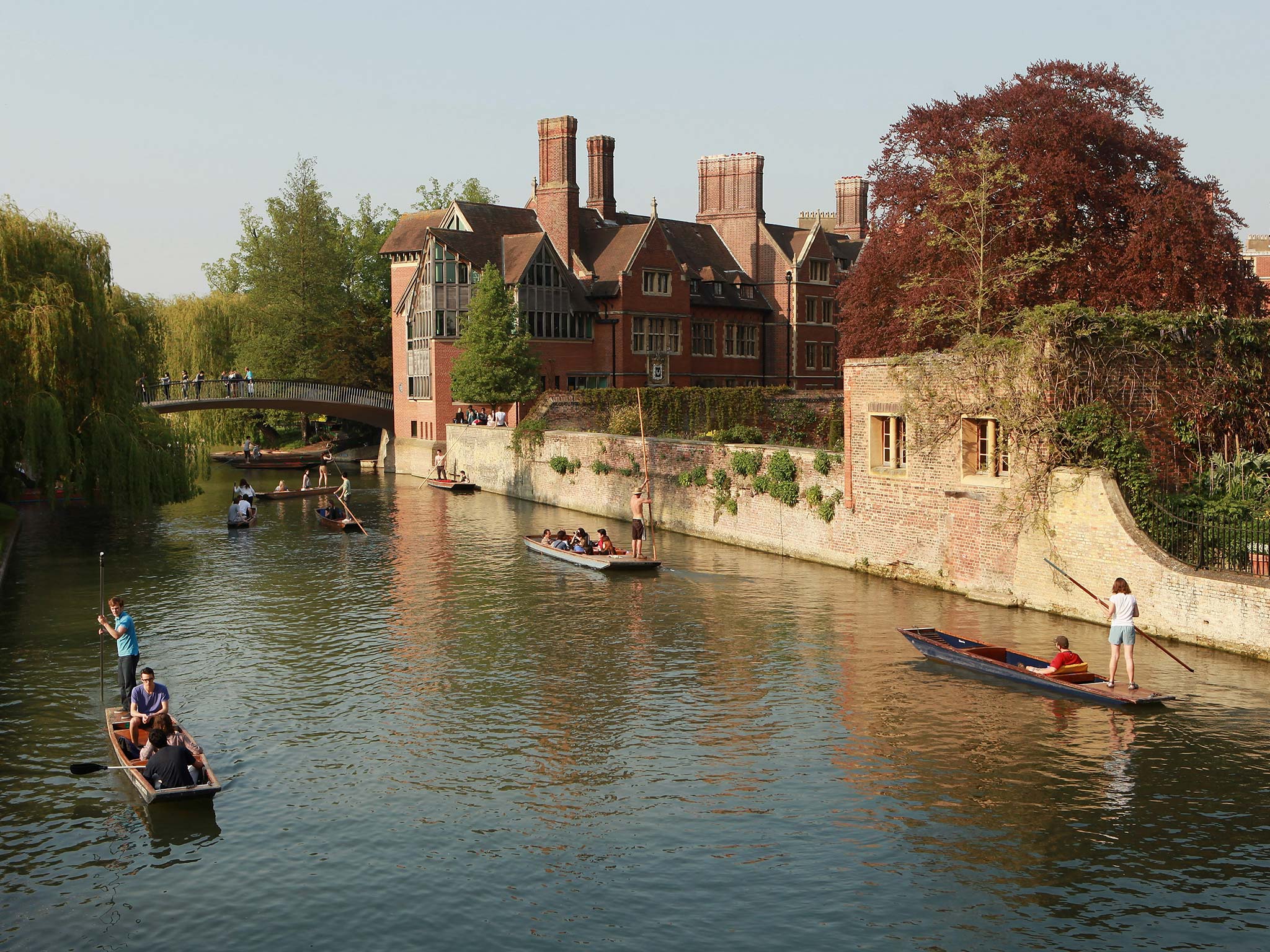Hard Brexit a 'disaster' for universities warn vice-chancellors
`A panel of university chiefs told MPs that applications from EU students were already down

Your support helps us to tell the story
From reproductive rights to climate change to Big Tech, The Independent is on the ground when the story is developing. Whether it's investigating the financials of Elon Musk's pro-Trump PAC or producing our latest documentary, 'The A Word', which shines a light on the American women fighting for reproductive rights, we know how important it is to parse out the facts from the messaging.
At such a critical moment in US history, we need reporters on the ground. Your donation allows us to keep sending journalists to speak to both sides of the story.
The Independent is trusted by Americans across the entire political spectrum. And unlike many other quality news outlets, we choose not to lock Americans out of our reporting and analysis with paywalls. We believe quality journalism should be available to everyone, paid for by those who can afford it.
Your support makes all the difference.Leaving the single market as well as the European Union would be a ‘disaster’ for British universities, leading academics have warned.
A panel of university Vice-Chancellors told the Education Select Committee that universities were already feeling the consequences of the vote to leave the European Union, particularly through the falling pound discouraging foreign academics to come to the UK to work. At Cambridge University, applications from other EU countries have already dropped by 14 per cent.
Alistair Fitt, vice-chancellor of Oxford Brookes University, said: "It would probably be the biggest disaster for the universities sector in many years."
John Latham, vice-chancellor of Coventry University, said it would make British universities "extremely uncompetitive".
Catharine Barnard, EU law professor at the University of Cambridge, said: "It promptly cuts off the flow of excellent people who are coming at the moment."
Prof Barnard said there had already been a drop in EU student applications.
"This year we have seen at Cambridge a 14% reduction in the number of applications from the European Union at undergraduate level, although I should say the number of applications from EU students at postgraduate level are up," she said.
"In respect of those who have declined an offer from Cambridge at postgraduate level, we have put a question in the so-called decliners survey to say 'what was it that dissuaded you from coming?'
"Those who answered the question offered a range of factors from a concern about anti-immigrant sentiment to devaluation of the pound and the fact that their scholarships would be worth less, although obviously not in the UK, and uncertainty over future research collaboration."
Prof Fitt told MPs the UK does not "get as much out" of some research and innovation funding pots as it puts in.
He said: "European structural funding is very important for the UK but the UK, I believe, doesn't get as much out of it as they put in.
"Structural funding can also come with quite a few strings attached, can come with quite a few risks and can be quite hard to manage.
"So, if we were able to replace the amount of structural funding with our own funds, that's a real opportunity that we could not only retain all that's best in that system, but actually make it an even better system."
Alastair Buchan, head of Brexit strategy at the University of Oxford, said the sector had been hit when Britain joined the EU.
He said: "One of the things that we did lose was that nice and easy flow of clinicians and clinician science from Canada, the US, Australia, New Zealand and South Africa.
"We had really good collaborations, which hopefully in this Brexit climate might be reinvented, because that movement of English-speaking medicine was actually a casualty of joining Europe."
Postgraduates from EU countries working in the UK are already considering moving abroad as the status of their right to remain in the UK after Brexit is not yet certain.
Anne Corbett, an associate at the London School of Economics said action was needed to prevent a "brain drain".
Dr Corbett told MPs: "I think that the issue we're talking about here is actually one which requires Government intervention and it requires it before the negotiations start.
"I would say that were the Government to come out of its kind of purdah, or whatever it's called, and say that from the start it would be creating a much more positive climate, to assure that EU citizens here were safe, which in the end is helpful all round."
Join our commenting forum
Join thought-provoking conversations, follow other Independent readers and see their replies
Comments